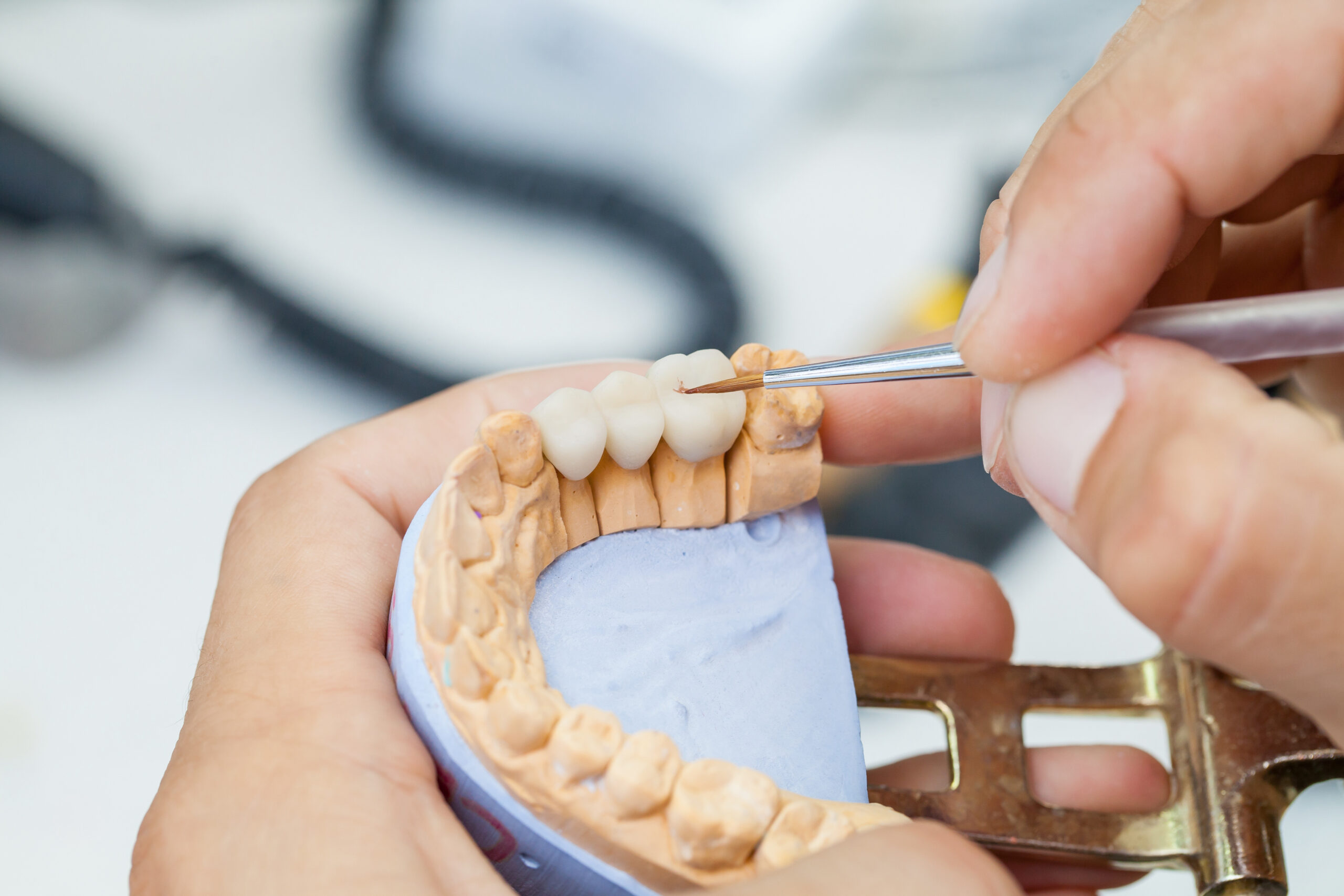
Frequently Asked Questions About Crowns and Bridges
If you are missing one or more teeth, your Melbourne FL dentist may recommend a prosthetic device like a crown or bridge. Most crowns and bridges are fixed, meaning they are cemented onto neighboring teeth and must be removed by a dental professional. The primary purpose of these devices is to restore the full function of a tooth or teeth. If you are considering either a crown or a bridge, it’s important to understand the differences.
What Is a Crown?
A crown is a type of dental cap placed on a damaged tooth to protect and restore its shape. Crowns can be made using a variety of materials, such as porcelain, zirconia, ceramic, composite resin, metal, or a combination of materials.
This type of prosthetic is often recommended to patients whose teeth are severely worn down, weakened, or cracked. Crowns are routinely recommended following root canals as these teeth are fragile and require extra protection.
What to Expect When Getting a Crown
The dental crown procedure usually occurs over the span of two visits to your dentist. During the first appointment, the dentist will prep your tooth by properly reshaping it and the surrounding gum tissue.
Impressions of your lower and upper arches are then taken and sent to the lab to manufacture the custom crown. You’ll receive a temporary crown while your permanent one is being made.
At your second visit, your permanent crown will be cemented onto your tooth. The dentist may make some adjustments to ensure a good fit. The crown is cemented into place to look and feel like your natural teeth.
How Long Do Crowns Last?
The average lifespan of a dental crown is between five and 15 years on average. To increase the lifespan of your crown, it’s important to maintain proper hygiene, good habits, and a healthy lifestyle.
What Is a Bridge?
Dental bridges are often recommended for patients missing one or more consecutive teeth. A bridge can help fill a gap with artificial teeth, which typically consist of artificial teeth which are supported by natural teeth on either side and cemented into place.
There are several types of natural looking dental options available.
Traditional fixed bridges are the most common and consist of two or more crowns and a connected filler tooth or teeth.
Other types of dentistry bridges include:
- Cantilever Bridge – This type of bridge is often used when there are no teeth located on one side of the gap which means only one side is used to support the bridge.
- Maryland Bridge – A Maryland bridge, also known as a resin-bonded bridge, is often used to replace front teeth. Maryland bridges use a metal framework that consists of porcelain fused to metal teeth.
- Implant-Supported Bridges – With an implant-supported bridge, titanium screws are placed into the jawbone to replace each missing tooth. This is the strongest type of restoration available.
What to Expect When Getting a Bridge
Similar to a crown, a bridge typically requires two appointments. At your first visit, your dentist will reshape the abutment teeth by removing some enamel and dentin. This is necessary to make room for crowns.
Your dentist will then take impressions of your teeth before sending them to the lab where the bridge, false teeth, and crowns will be manufactured. You’ll receive a temporary bridge in the meantime to protect the exposed areas in your mouth.
At your second visit, your dentist will place your permanent bridge. Some adjustments may need to be made to ensure a proper and comfortable fit. The crowns and bridge are then cemented into place.
How Long Do Bridges Last?
With regular professional cleanings and good hygiene habits at home, a dental bridge will generally last between five and seven years on average. However, the type of bridge and other factors can affect the overall lifespan of this prosthetic.
Call Your Melbourne Florida Dentist
Both crowns and bridges can help patients restore their smile, chewing capabilities, and confidence. To learn more about either of these restoration options or to schedule an appointment, contact Artistic Touch Dentistry today.

